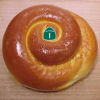 What makes a congregation? Is it the people in the community, and their relationships to one another? Is it the leader of the community, and his or her relationship to the people in the community?
What makes a congregation? Is it the people in the community, and their relationships to one another? Is it the leader of the community, and his or her relationship to the people in the community?
Here’s why I’m asking. As background: Our congregation has had a bad fiscal year. Budget spreadsheet errors and other factors led to a greater than expected deficit (hint, Mr. President, budgets with large deficits are not a good idea, but I digress). At the same time the process was continuing of finally getting the people side of the house in order: ensuring contracts were reviewed regularly, and getting processes in place for regular employee performance reviews and assessments. Two years ago as this process was gearing up the Cantor’s contract came up for review, and the decision was made by the board not to renew it. That upset some in the congregation (although the Cantor herself bounced back and found a job at another congregation in the area — together with our Cantor Emerita, I might add).
Yesterday, we received a letter from the President of our congregation. In it, it said: “… the Board of Trustees of [the congregation] has decided we need a new voice from the Bima and will begin the process to select a new Senior Rabbi effective immediately. Rabbi [name]’s contributions to [the congregation] over these many years have helped to make our congregation what it is today and his work will be honored and appreciated long into our future. We will be honoring Rabbi [name]’s service to the congregation at a later date and more information will be available as soon as possible.” (I’m intentionally keeping the congregation and rabbi’s name out of it, to focus the discussion on the broader question).
I wasn’t on the Board for this decision (although I was two years ago when then Cantor’s contract and performance were reviewed). I do know that the Rabbi’s contract was up for renewal this year and that the performance review process was now in place, and that if one is not renewing a contract, it must be announced by November to allow the timing of the search processes to work. I am well aware that the Board cannot legally state the reasons behind their decision: this is covered by labor law and is there to protect the privacy of the employee.† For those who understand Judaism, it is also covered by Jewish law on gossip. Much as the Congregation would want to hear those reasons, disclosing them would start the rumor and innuendo, and that would be completely inappropriate.
Of course, I have my thoughts as to some of the factors. They are my opinion, of course, and don’t relate to the question. I may put my thoughts as comments on the blog post, so you’ll have to go read them there.
After the announcement yesterday, the Rabbi posted (on FB) his personal email address for those that wished to contact him. That prompted a series of “how could this happen”, combined with the inevitables: (•) I’ll go with you where ever you end up; (•) I’m resigning my membership immediately; (•) after all these years of service, the board was destroying the congregation; (•) you’re the only reason, and I mean the only reason I go to [congregation]; (•) if this board thinks they can come in and wreck the institution overnight, well that’s what they’ll get; … and so forth.
Now I’ve been with many congregations — some of which seemed to change Rabbis every few years. I’ve seen people want to leave when a Rabbi left, and I’ve even explored creating a new congregation around a Rabbi when they left (it didn’t happen). I’ve come to realize that a congregation is not its leader — it is the people that make up the congregation and the relationships between those people. It is the friendships that form between families, the caring about one another. I care about Joe and Bob and Frank and Dave and Bill and Mike and Ron and … and their families, and hopefully, they return that care (those are representative names). If the only relationship that holds a congregation together is the one between a family and the clergy, then the congregation is weak indeed.
Yet in the responses I’ve seen on the Rabbi, that appears to be what is on the mind of a number of members. Saying “If the Rabbi goes, then I go” says to me that you have formed no close relationships with others in the congregation — that your view of the congregation is only what services you get and who gives them to you, not the other members. In many ways, that fits with the names I see: most are folks who haven’t been regularly and heavily involved; folks who may have a relationship with the Rabbi through the school or specific activities, but haven’t formed that larger bond with the congregation.
Hence, my opening question: What makes a congregation? Is it the relationships that form within and between the members — the community and family that is created? Is it the leader, such that when a leader leaves, everything falls apart because they were the only glue? I opine that it should be the former: that if a congregation is strong and has done its job right, then the community cares for each other and will move on. It will grieve for the transition of the leader, but the survival of the community is more important than one individual. The congregation exists to serve the community and keep the community alive, not to employ one person, no matter how good that person may be. It is the community that makes Judaism, not a specific charismatic leader.
[†: This is something I wrote in response to another post on FB: Under labor law, job performance and job review is confidential between the employer and the employee. So the specific reasons need to remain within the employment subcommittee — not only to protect the employer, but to protect the employee from gossip. I’m not on the board now (I was when I was MoTAS president 2 years ago), but that’s why we couldn’t say anything regarding the former cantor. Think about it this way: If you were let go from your employer for job performance reasons, would you want those reasons spread around to your fellow employees or to other employers? [That would also go against the Jewish prohibition of spreading gossip]. We simply have to trust that Board — with its variety of opinions — and all the past Presidents consulted — came to the right conclusion regarding what is best for the congregation.]


 A friend of mine from our synagogue brought to my attention
A friend of mine from our synagogue brought to my attention  The Jewish New Year started Wednesday night; perhaps
The Jewish New Year started Wednesday night; perhaps 
 Another traditional food is a
Another traditional food is a  Two articles that have crossed my feeds of late both highlight the issue of hatred: one of hatred of Jews, the other of hatred by Jews. Both demonstrate significant failures of our society.
Two articles that have crossed my feeds of late both highlight the issue of hatred: one of hatred of Jews, the other of hatred by Jews. Both demonstrate significant failures of our society. Here’s a collection of articles that I found to be quite interesting (and worthy of comment), and yet ones that are unlikely to fit into a themed post:
Here’s a collection of articles that I found to be quite interesting (and worthy of comment), and yet ones that are unlikely to fit into a themed post: I’m home today with a cold, and I have loads of interesting news chum links that have no coherent theme, so let’s just get them out there (h/t to Andrew Ducker for a few of these). Oh, and with each, you’ll get a little bit more.:
I’m home today with a cold, and I have loads of interesting news chum links that have no coherent theme, so let’s just get them out there (h/t to Andrew Ducker for a few of these). Oh, and with each, you’ll get a little bit more.: Reading through my Facebook feed today, an article from Haaretz caught my eye:
Reading through my Facebook feed today, an article from Haaretz caught my eye: